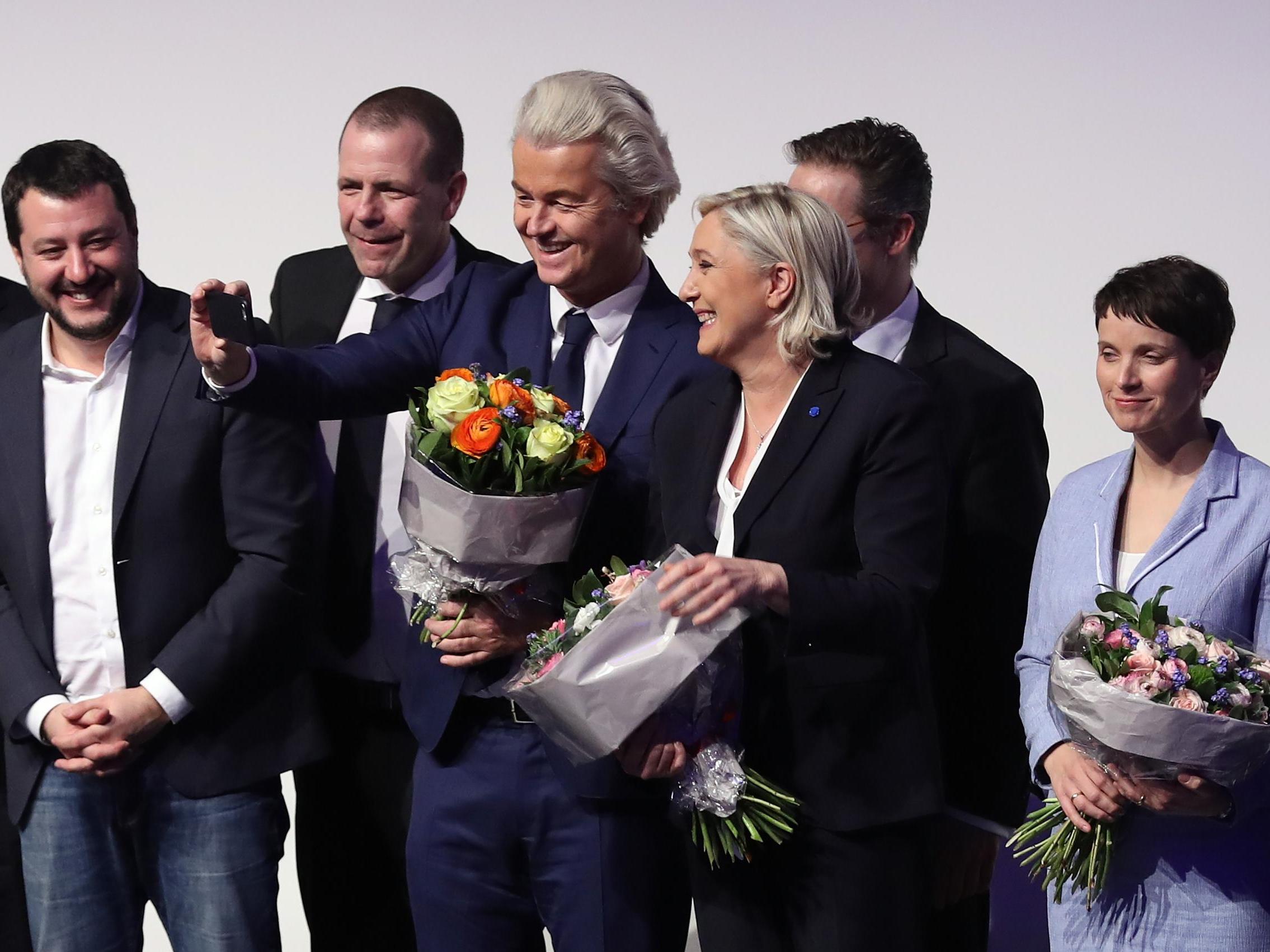EU election polls: Right-wing populist and Eurosceptic parties would be biggest single group in European parliament
The combined seats of the three existing groups would dominate the parliament

Your support helps us to tell the story
From reproductive rights to climate change to Big Tech, The Independent is on the ground when the story is developing. Whether it's investigating the financials of Elon Musk's pro-Trump PAC or producing our latest documentary, 'The A Word', which shines a light on the American women fighting for reproductive rights, we know how important it is to parse out the facts from the messaging.
At such a critical moment in US history, we need reporters on the ground. Your donation allows us to keep sending journalists to speak to both sides of the story.
The Independent is trusted by Americans across the entire political spectrum. And unlike many other quality news outlets, we choose not to lock Americans out of our reporting and analysis with paywalls. We believe quality journalism should be available to everyone, paid for by those who can afford it.
Your support makes all the difference.The EU’s Eurosceptic, populist and far-right parties would constitute the largest group in the European parliament after next month’s election – if they united into a single group.
The latest official seat projections show three right-wing Eurosceptic groups – the EFDD, ECR and ENF – would have 184 seats between them, according to current polls.
The haul would put them just ahead of the centre-right European People’s Party, which is projected to win 180 seats, according to the parliament’s calculations. The centre-left socialist group is currently on course to win 149.
Far-right leaders such as Matteo Salvini and Viktor Orban have called for anti-immigrant, Eurosceptic and far-right parties across the continent to unite into a single “axis” to take control of the EU institutions.
Former Donald Trump advisor Steve Bannon has also said he wanted to unite the groups, though his overtures have been met with a frosty reception from the parties so far.
While the populists have announced their intentions to form a new, consolidated alliance, in practice, splits and rivalries between the ECR, ENF and EFDD groups mean they are extremely unlikely to all join a single faction.
Some parties in the groups, such as the UK’s Conservatives, see themselves as less extreme and would be unlikely to agree to sit with others, such as France’s National Rally, led by Marine Le Pen – despite shared Euroscepticism and hostility to free immigration.
Some of the Conservatives’ allies in the ECR, such as the Danish People’s Party, have said they would sit in such a united group, however – going as far as to attend joint rallies.
The projected size of the Eurosceptic groups is in part attributable to the last-minute participation of the UK in the elections, with Ukip, the Brexit Party and the Tories all sitting in at least one of the groups and expected to return a significant number of MEPs.
Britain’s participation is also a boost for the centre-left socialist group, which is likely to benefit from Labour MEPs, and the Greens/EFA, which would be bolstered by Green, SNP and Plaid members.
The centre-right still looks set to retain the European Commission presidency under the latest projections, which come just as the election campaign gets underway in earnest across the continent.
Under the EU’s “Spitzenkandidat” system, the lead candidate for the group that comes top in the elections becomes the commission president, as long as member states approve.
The centre-left socialist group is hoping to snatch the presidency with the help of Labour MEPs, but the latest projection has the EPP increasing its lead.
The latest YouGov poll for the European parliament elections in the UK has the Brexit Party winning 23 per cent of the vote, Labour coming second with 22 per cent, the Conservatives on 17 per cent, Green party on 10 per cent, Lib Dems on 9 per cent, Change UK on 8 per cent and Ukip on 6 per cent.
The EU-wide European parliament seat projections, released on Thursday, are calculated by officials at the parliament and based on publicly available polling of the 28 different national contests from across the continent.
The European parliament elections are scheduled to last from Thursday 23 May until the Sunday evening of that week, when the results will be counted. The UK is set to participate if it has not left the EU by then, as is increasingly likely.
Join our commenting forum
Join thought-provoking conversations, follow other Independent readers and see their replies
Comments